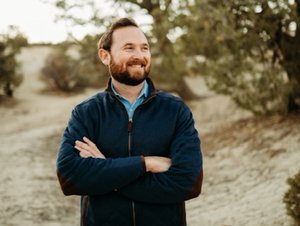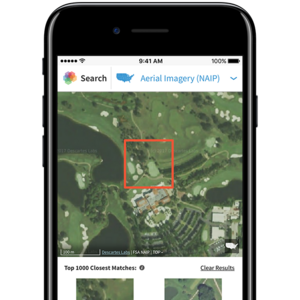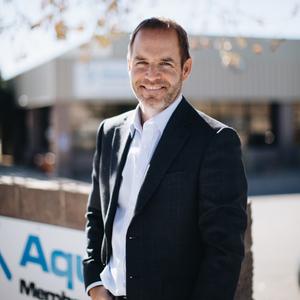
Late last year, New Mexico's State Investment Council — an institutional investment firm that manages billions of dollars in permanent and governmental funds for the state — dedicated $100 million to a newly formed venture capital firm with a promise of technological investment in the Land of Enchantment.
That national firm, America's Frontier Fund, launched last year and is on a path toward a $500 million first fund, boosted in part by the State Investment Council's commitment. The first investment out of that fund — dubbed Frontier Fund I — went into an upstart New Mexico organization that wants to find promising research and development at the state's national laboratories and universities and spin it into commercially viable companies.
Adam Hammer, an advisor to America's Frontier Fund and former managing director at a venture firm founded by a past Google CEO, has been tapped as the president of that organization, called Roadrunner Venture Studios. The initial investment in the studio totals $10 million, which is the first investment out of the $500 million Frontier Fund I.
A venture studio works differently than a typical venture capital firm. Instead of putting money into existing companies in return for some stake in those companies, venture studios act to build startups from the ground up by extracting fresh technologies still in the research and development phase.
Roadrunner Venture Studios, in particular, wants to help build "deep tech" startups in New Mexico across different sectors, including space technology, advanced manufacturing and high-performance computing. Hammer said these are usually intensive technologies backed by some form of hardware, as opposed to less intensive, software-based ventures.
To do that, Hammer said he wants the venture studio to employ around 10 people full time along with some part-time advisory staff once fully operational. The studio would also look to invest some money into early funding rounds — like pre-seed, seed and Series A — of startups in the state.
And even though the studio's official launch is a few months out, Roadrunner held a community showcase event in Albuquerque's Innovation District on Thursday evening. It featured poster presentations on different technologies being developed by startups and scientists and researchers at New Mexico universities and national labs.
Albuquerque Business First sat down with Hammer before that event to learn more about his focus for Roadrunner Venture Studios and what he thinks the firm could bring to New Mexico's startup ecosystem.
This interview was edited for brevity and clarity.
Albuquerque Business First: Why New Mexico? What does Roadrunner Venture Studios see here in the state?
Adam Hammer: Oh, there's an unbelievable amount of untapped potential here in New Mexico. You have all the building blocks between the technical talent, the deep history of innovation and science, cutting-edge laboratories, phenomenal universities and a very supportive state government that I think has been quite opportunistic about leaning into frontier tech.
I think it's an untapped reservoir of talent and science, and it makes us fired up to be turning on the lights here in New Mexico.
What kind of startups is Roadrunner targeting for investment? It's going to be frontier tech. So think about companies and founders that have a unique technical insight, that have some component of foundational tech that's critical to the United States. In particular that's things like semiconductors, advanced manufacturing, next-generation energy, space tech and quantum sciences. That's where we're going to be focused on building, and that's what the studio has a competency in building.
Is there a plan to recruit companies to New Mexico, or is it primarily focused on building startups that are already here? It's a nuanced answer in the sense that there is a plan to be recruiting founders to come build here.
So, for instance, we come up with an idea [for] a deep tech company that we want to build, the studio will do the roll-up-your-sleeves work of going from concept to company — putting in capital, building the product, building the business model — and then the work we'll need to do is to go find those founders. Sometimes they'll be here, and sometimes they might be in Seattle, Boston or New York.
What we'll do is we'll say, 'Okay, you want to come lead this company or be the CTO of the company we're building, come to New Mexico. Come build it here.' We'll be building the building blocks to make sure we can make that case ever more palatable and even more attractive to talent.
What are those building blocks, do you think, to actually make that case? I think it's a few things. I think one it's about supporting the ecosystem. So, for instance, capital is integral. I keep hearing the frustration about really promising startups that leave the state. My goal is to turn that around. … We will be able to be a beacon for capital — not just our own capital, but crowding in other capital.
Two, there is a whole bunch of really promising [research and development] in the university labs and in the national labs. My philosophy is that we have to meet people where they are — you can't fly into the state and fly out to do the work.
Three, you have such a supportive state between the governor's office, the local mayor's office and certainly the state Investment Council. The state is leaning into frontier tech, and they want to partner to make sure that companies want to build here.
What do you think the biggest challenge is going to be in reaching Roadrunner Venture Studios' goals for startups here in New Mexico? If you'll let me, I'll give you two challenges. One is we really have to find and have to have an amazing core philosophy about finding talent and the people to run these companies. You can have an amazing technical insight and we can build an amazing business model, but the beauty of the studio model is that we give it away. If you don't have amazing co-founders that we can bring in to lead these companies, we're in trouble. That means we have to be in the business of people, not just the business of ideas.
Two is that … we are really focused on getting some early wins. What I want to do is to be able to build companies quickly, but not companies that will fizzle out in two years. Companies that have staying power. I'm not interested in waiting two years to have that — I'm interested in starting now. I feel a sense of urgency to build something here in the community.
I'm balancing that with [the fact that] deep tech takes a long time. These are deeply technical companies with high barriers to entry, and it's going to be a challenge. We know how to do it, but I want us to get going and to get going quickly.









